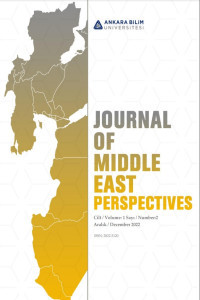Rusya'da Siyasal Değişimler Çerçevesinde Tarihsel Olarak Rus Eğitim Sistemi ve Okul Öncesi Eğitim Yapısı ile İlgili Bir Değerlendirme
Okul öncesi eğitim sistemi, 7 yaş altı çocuklara kaliteli eğitim sunmaya odaklanmaktadır. Adı geçen bu eğitim sisteminde, çocuklarda sosyalleşme süreçlerinin öğretilmesi ve onların kişilik gelişimine faydalı olması hedeflenmektedir. Söz konusu bu hedefe ulaşmak için devletler, kendi ülkesinin dinamiklerine göre farklı eğitim sistemi yürürlüğe koymaktadır. Rusya Federasyonu, eğitim sistemindeki genel durumu göz önünde bulunduracak olursak, söz konusu bu farklılığın en ciddi şekilde görüldüğü ülkelerden biridir. Bu durumun oluşmasının temel kaynağı Rusya’nın tarihsel geçmişi, coğrafi ve demografik yapısında yatmaktadır. Rusya’nın tarihsel geçmişinde, küresel anlamda farklı ekonomi ve siyasi yapıya sahip, toprak parçası olarak Dünya’nın en büyük ülkesi ve farklı dil, din, mezhep ve ırkları içinde bulunduran Sovyetler Birliği vardır. Bu anlamda Rusya’nın eğitim sisteminin, diğer ülkelerin eğitim sisteminin yapısı ve özelliklerinden farklı olması olağandır. Bu olağan durum ardından, 1991 Sovyetler Birliği’nin dağılması sonrası Rus eğitim sistemi kendini güncelleyerek değişime gitmiştir. Rusya’da, bu değişimin neticesinde eğitim sisteminin yapısı ve özellikleri birçok reforma uğradı ve hala bu reform süreci devam etmektedir. Bu bağlamda bu çalışmanın amacı, Rusya Federasyonu’nun eğitim sisteminin yapısı ve özelliklerini irdelemektir. Söz konusu bu irdelemede, konu sınırlandırılarak okul öncesi eğitim seviyesine ağırlık verilmektedir. Çalışma sonucu olarak, Rusya’daki eğitim sistemi nevi şahsına münhasır bir modele sahiptir. Bu model, tarihsel süreç içerisinde reforma uğrasa da okul öncesi eğitime verilen önem azalmamıştır
Anahtar Kelimeler:
Sovyetler Birliği, Rusya, Eğitim Sistemi, Okul Öncesi Eğitim, Eğitim Hakkı
A Historical Russian Education System and Preschool Education Structure in the Framework of Political Changes in Russia
The preschool education system focuses on providing quality education to children under the age of 7. In this education system, it is aimed to teach the socialization processes of children and to be beneficial for their personality development. In order to achieve this goal, states implement different education systems according to the dynamics of their own country. If we consider the general situation in the education system, the Russian Federation is one of the countries where this difference is seen most severely. The main source of this situation lies in Russia's historical past, geographical and demographic structure. In the historical past of Russia, there is the Soviet Union, which has a different economic and political structure in the global sense, the largest country in the world in terms of territory, and different languages, religions, sects and races. In this sense, it is normal for Russia's education system to be different from the structure and characteristics of the education system of other countries. After this ordinary situation, after the collapse of the Soviet Union in 1991, the Russian education system updated itself and changed. In Russia, as a result of this change, the structure and characteristics of the education system have undergone many reforms and this reform process still continues. In this context, the aim of this study is to examine the structure and features of the Russian Federation education system. In this discussion, the subject is limited and the pre-school education level is emphasized. As a result of the study, the education system in Russia has a sui generis model. Although this model has been reformed in the historical process, the importance given to pre-school education has not decreased.
Keywords:
Soviet Union, Russia, Education System, Preschool Education, Right to Education,
- ISSN: 2822-5120
- Başlangıç: 2022
- Yayıncı: Ankara Bilim Üniversitesi
